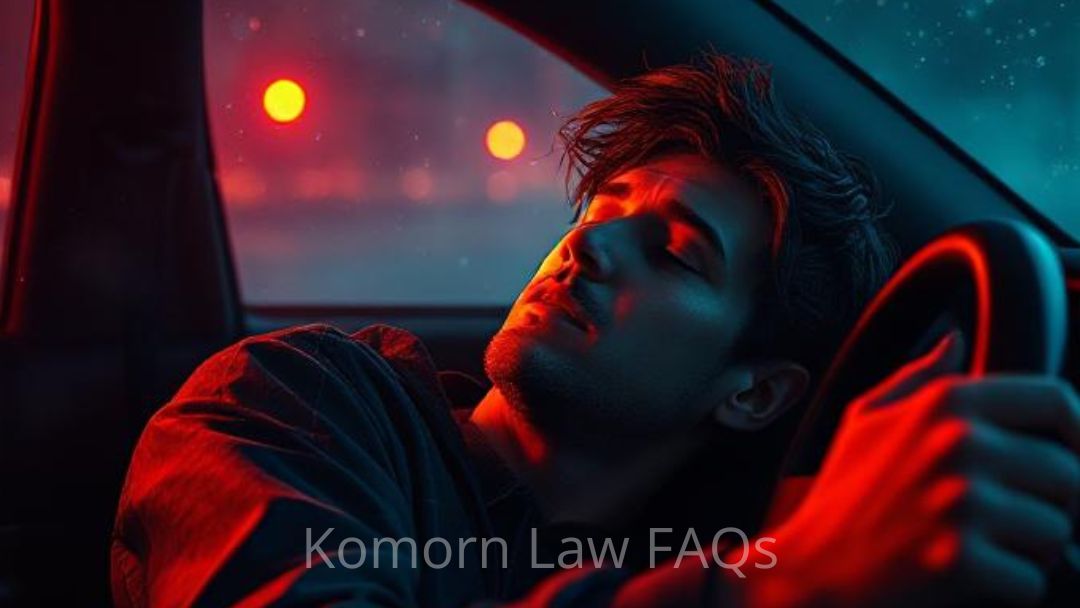Michigan Criminal Laws FAQs Super Drunk (High Breath Alcohol Content)Operating a Vehicle with a High BAC (Super Drunk) - MCL 257.625(1)(c)FAQ 1: What BAC level qualifies as "High BAC" or "Super Drunk" in Michigan? Answer: In Michigan, operating a vehicle with a blood...

Michigan Record Expungement Information
Am I eligible to apply to expunge a criminal record? Is it automatic?
So your new girlfriend has a criminal record and you can’t get that apartment together. If that’s really what you want to do, then here’s some information to get that record expunged.
What is an expungement?
Michigan Law has long provided that individuals convicted of most state criminal offenses could be expunged or set aside, under certain circumstances and if certain pre-conditions are met. Offenses that could not be expunged or set-aside included offenses like murder, criminal sexual conduct or any traffic offense. When a record is expunged or set aside it no longer becomes accessible to public records so employers and others cannot locate them, however, the records are still accessible in a non-public record which is available to law enforcement agencies.
Limitations
There are certain limitations to the process of setting aside a conviction, including factors such as the total number of convictions you hold, the specific nature of those convictions, and the timeframe in which the convictions occurred.
This only applies to Michigan convictions. NOT federal or out-of-state convictions.
Choose wisely
There is no limit to the number of misdemeanors that can be set aside in your lifetime, while you may have the opportunity to set aside up to three felonies in your lifetime. However, certain types of convictions may impose additional restrictions on the number of convictions that can be set aside.
For some situations multiple convictions may be counted as one. Hence the “One Bad Night Rule”
There is a list of links to answer question, forms, contacts and more at the end of this article. If you want an attorney to do it then it’s going to be costly and it may be worth it.
One Bad Night Rule
To qualify under this rule, the convictions must stem from the same series of events occurring within a 24-hour timeframe, and none of the convictions can be for:
- An assaultive crime
- A crime with a maximum sentence of 10 or more years’ imprisonment
- A crime involving the use or possession of a dangerous weapon
A dangerous weapon is any of the following:
A firearm, whether loaded or unloaded and regardless of its functionality, as well as knives, stabbing instruments, brass knuckles, blackjacks, clubs, and any other objects specifically intended for use as weapons.
An object that has the potential to cause death or serious injury when wielded or carried as a weapon or something that is created or used to deceive an individual into believing it is one of the aforementioned weapons.
If you have multiple felony convictions that fall under the one bad night rule, those convictions will be counted as only one felony. For instance, if you have four felony convictions total and two of them qualify for this rule, you could still potentially set aside your convictions since your total would be considered three instead of four.
Komorn Law (248) 357-2550
Criminal Defense | DUI | Traffic Tickets | Business | Family Law
Check on an Automatic Expungement
Visit ICHAT to check your record to determine if your conviction was automatically expunged.
If your record was not automatically expunged and you believe it should have been, you will need to email the Michigan State Police Department.
Excluded Offenses
- All offenses punishable by life imprisonment
- Assault with intent to commit criminal sexual conduct
- Child sexually abusive material or activity offenses
- Felony domestic violence if the person has a previous misdemeanor conviction for domestic violence
- Fourth-degree criminal sexual conduct (committed after January 12, 2015)
- Human-trafficking related offenses
- Second-degree child abuse
- Second-degree criminal sexual conduct
- Some traffic offenses such as: convictions for driving while intoxicated, traffic offenses that cause injury or death, and commercial driver’s license violations
- Terrorism-related offenses – includes convictions for attempts to commit any of these offenses
- Third-degree criminal sexual conduct
- Using a computer to commit sex crimes offenses
Related Posts
Expungement Process
Currently, the entire expungement process can take up to eight months.
- MC 227, Application to Set Aside Conviction(s) (PDF). Applicant submits application. All expungement applications can be found in the “Applications & Checklists” section below.
- Michigan State Police (MSP) process expungement applications. Once MSP has the required documentation, please allow up to two months for your Criminal History Report to be processed.
- The Department of Attorney General’s response will be processed up to three months after the Criminal History Report has been completed.
- Expungement hearing
Links
- Application and Process FAQ
- Expungement FAQ
- Excluded Convictions FAQ
- Marijuana Misdemeanor Crimes
- Checklist for Misdemeanor Marijuana Adult Offense(s)
- MC 227a, Application to Set Aside Marijuana Conviction(s)
- Checklist for Other Misdemeanor and Felony Offense(s)
- MC 227, Application to Set Aside Conviction(s)
- Check the Status of Your Application
- Setting Aside Convictions MCL 780.621
- Operating While Intoxicated (OWI) First Time
Forms And Instructions
- Application to Set Aside Conviction(s) Form
- Order on Application to Set Aside Conviction(s) Form
- Application to Set Aside Misdemeanor Marijuana Conviction(s) Form
- Order on Application to Set Aside Misdemeanor Conviction(s) Form
- Application for Human Trafficking Victim to Set Aside Conviction(s) Form
- Order on Application by Human Trafficking Victim to Set Aside Conviction(s) Form
Sometimes our posts provide a general overview of things with opinionated sarcasm and dry humor by the writer to lighten the same old same old of other law sites. It does not substitute for legal advice. Anyone charged with a criminal offense should consult an attorney for specific legal guidance. BTW. True Fact: When Michael Komorn fights the justice system there is only one focus. You and your rights.
Recent

Judicial Accountability in Michigan for Judges
Maintaining public trust in the judiciary is paramount to a functioning legal system. In Michigan, several mechanisms exist to ensure judicial accountability, holding judges responsible for their conduct both on and off the bench. These safeguards are primarily...
More
Former 3M scientist who made unsettling PFAS discovery says bosses deceived her
Gee - What a surprise... When a former 3M scientist discovered the company’s chemicals were in human blood in the general population, she says her bosses misled her to believe it was harmless.3M accused of deceiving its own scientist about PFAS in human blood Hansen...
Search and Seizure – Consent or Plain view
The Fourth Amendment was established to protect individuals from unreasonable searches and seizures, yet there are exceptions.In Michigan, understanding the concepts of search and seizure, particularly regarding consent and plain view, is crucial for both law...
A drunk driving investigation, a car wreck and a blood draw
A Case Summary: People v. Blake Anthony-William BartonOn October 11, 2024, the Michigan Court of Appeals issued a decision in the case People of the State of Michigan v. Blake Anthony-William Barton. The case involved a drunk driving investigation following a car...
Police say they can tell if you are too high to drive
Police say they can tell if you are too high to drive. Critics call it ‘utter nonsense’Haley Butler-Moore sped up to pass a semi on the highway when she suddenly saw the police lights. She’d left Albuquerque hours earlier, heading to a Halloween party in Denver. Tired...
Cannabis – The Rise and Fall and Trail of Survivors Pile Up
Thieves make off with 1,000 pounds of premium flower in cannabis from a corporate grower in Michigan. Then, the GM sells off 650+ pounds to pay employees.The recent theft of over 1,000 pounds of marijuana from 305 Farms, a corporate cannabis grower in West Michigan,...
What is Recidivism in Legal Terms?
What does Recidivism mean?In legal contexts, recidivism refers to a person’s relapse into criminal behavior, often after having been previously convicted and penalized for similar or other crimes. When someone re-offends, they are described as a "recidivist."...










































